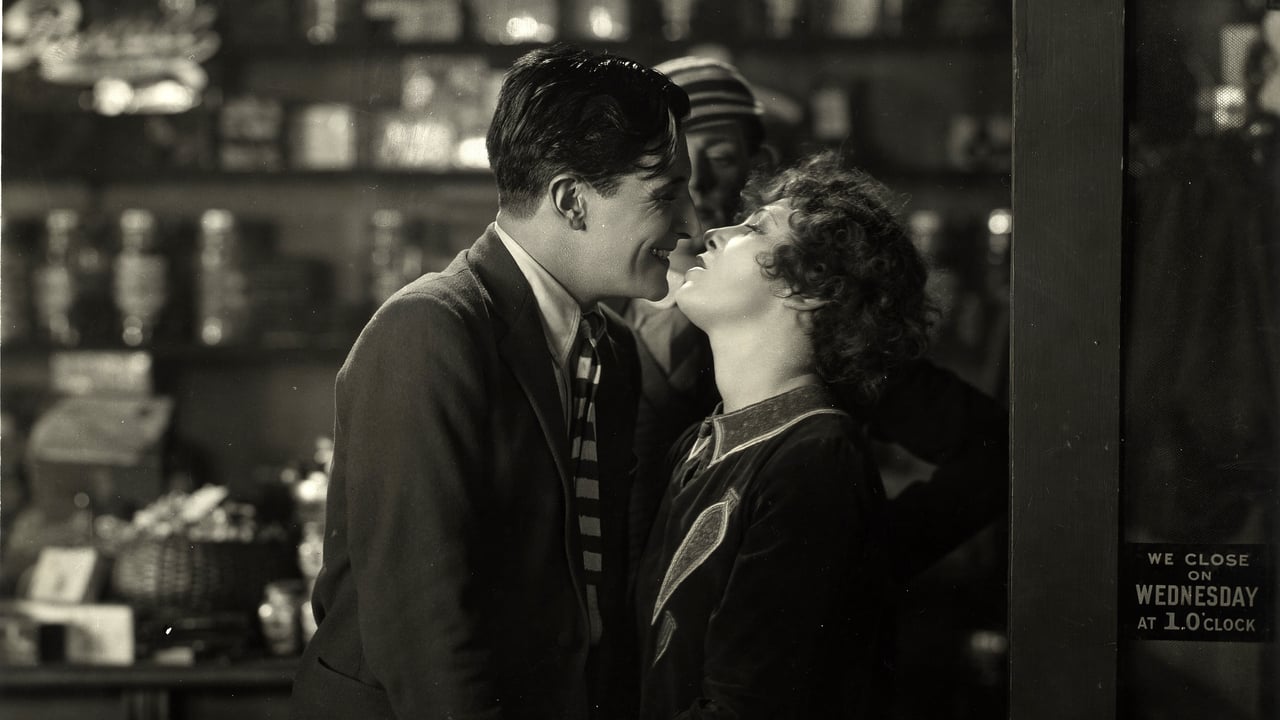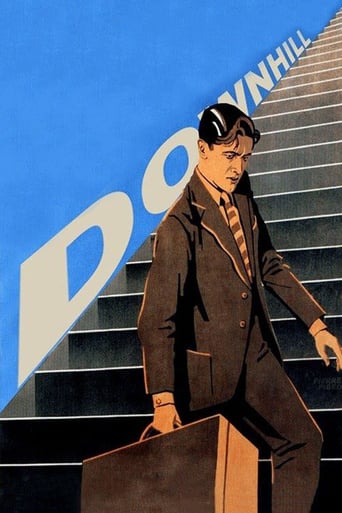

not as good as all the hype
... View MoreBetter Late Then Never
... View MoreBeautiful, moving film.
... View MoreOne of the most extraordinary films you will see this year. Take that as you want.
... View MoreThis was Hitchcock's fourth film, after his first hit, THE LODGER, and with the same leading man, Ivor Novello. The latter was a very effective silent film actor, romantic and dashing (he resembled the young Fredric March). He takes direction well from Hitchcock, playing a man whose reckless "honor" sets him on the downward spiral of a vagabond existence.Hitchcock plays with camera angles and editing techniques that were innovative for the time. The use of the hand-held camera to denote visual unsteadiness, the montage of disturbing images to denote delirium, and a generous use of close-ups. It's the style here of a true artiste that is most impressive.Novello made 16 silents, two of which are lost. He proved himself quite a bad sound actor and only made six talkies. Film's loss was the theater's gain as he composed the music for and rote the librettos for 8 grand London operetta extravaganzas between 1939 and 1952, making a greater name for himself than his acting would have provided.This is one of Hitchcock's most impressive early films. The genius was there from the start.
... View MoreClassmates and close friends at an English public school, Roddy Berwick and Tim Wakely compete for the affections of a local shop girl. When the girl falsely accuses Roddy of getting her pregnant, he is expelled. However, Roddy remains silent to protect Tim, who was the guilty party, and the friends make a pact to keep silent. Outraged at his expulsion, Roddy's father does not believe his son's claims of innocence and throws him out. Thus, Roddy strikes out on his own, and his life begins a downward spiral from stage acting to a disastrous marriage to taxi dancing to the Marseilles waterfront. "When Boys Leave," also known as "Downhill," was Alfred Hitchcock's fifth completed film, and, early on in his career, the master director explores his oft-repeated theme of the wrongfully accused.Shot in 1927, the film is silent with inter-titles, and the black-and-white cinematography is often well lit with striking visual compositions. However, Hitchcock generally holds the camera steady, and movement occurs within the frame. The film lacks the camera fluidity common among movies of the late silent era, although Hitchcock is already a master of visual story-telling, and the inter-titles are brief and sparse. As Roddy's life reels out of control, he is dwarfed by his surroundings in rooms with impossibly high ceilings and doors that are more than twice his height. Fortunately, Hitchcock elicits naturalistic performances from his cast, and none indulges in the grand style of acting that negatively stereotyped silent movies. Ivor Novello, a Welsh matinée idol best known for his musical talents, plays the suffering Roddy quite well. Isabel Jeans as Julia Fotheringale, a spendthrift actress, and Ian Hunter as Archie, Julia's shady lover, provide amusing support during one colorful episode in Roddy's descent."When Boys Leave" is from Hitchcock's apprentice period in England, when he was still learning the craft. While the story is thin, and the motivations vague, this short silent film shows flashes of the genius to come, and, for students of the master, every Hitchcock film is worthwhile viewing.
... View MoreI watched Alfred Hitchcock's DOWNHILL (1927) starring Ivor Novello. I thought this was a fascinating film although it's not very well regarded.Novello plays a wealthy Oxford student who stupidly takes the blame after a vindictive waitress points him out (his father is rich) as her seducer. The real seducer is his friend, but he takes the blame, assuming it will all blow over. But he gets expelled and sent home where his father pitches a fit and calls him a liar. Novello storms out of the house.Cast into the cruel world, Novello must find his own way. In a brilliant sequence, following an intertitle that announces "make believe" we see a well dressed Novello holding a cup of coffee, but as the camera pulls back we see that he is holding a tray and serving coffee to a flashy couple (Isabel Jeans, Ian Hunter). Well at least he has a job! But then as the couple heads to the dance floor the camera pulls back again and we suddenly realize that, as the couple starts dancing, they are on a stage. The audience comes into view and a line of high-kicking dancers races out onto the stage.Jeans turns out to be a selfish woman involved with Hunter. There is never enough money. Novello becomes a hanger-on until he receives a telegram with news about an inheritance. Jeans quickly marries Novello and starts spending freely. Time passes. Jeans and Hunter are sitting in a lavish bedroom. She's endlessly sitting at dressing tables, admiring herself and her jewels. Novello comes home and find a pile of bills, an overdrawn notice from the bank, and Hunter in the closet. The apartment is in her name and he's thrown out into the cruel world.Next we find Novello as a taxi dancer in Paris. He seems to have a "manager" who sells his dances and possibly more. While he dances we see a middle-aged age woman (Violet Farebrother) sitting at a table. She can't take her eyes off him. She arranges for an introduction. He babbles away, telling her his sad story while her eyes frankly devour him. Amazing sequence. But as morning dawns and the blinds are raised, Novello finally see this tawdry world of drunks and dissolutes and once again goes out into the cruel world to Marseilles.Sick and broke, Novello is saved by a pair of sailors and put on a ship back to England after they find a returned letter. Do they think there will be a reward? During the voyage, Novello hallucinates and relives his past accounts with all the horrid women in his life. This is a beautifully done scene. Finally he arrives home.I cannot think of another film from this era where the male is the societal victim and who, through nobility, suffers as he descends to the depths at the hands of women. Novello is actually playing a twist on the many Ruth Chatterton roles where she follows this sort of journey to find redemption and/or death. Along with The Lodger, this may be Ivor Novello's best film performance.As for Hitchcock, there are many great scenes here and lots of symbolism as Novellos is seen on escalators and elevators going down, down, DOWN.
... View MoreMy copy of this movie is truly silence with no musical score. Whenever I watch a movie that is completely silent, initially I find it a little hard. But when the film is well made, as this one is, it doesn't take long to adjust and focus on the story as you are drawn into it. I feel Hitchcock was a master of the silent film genre with his ability to tell such a deep story with very few intertitles. Relying instead on the expressions of the actors and written notes and signs in the movie, without having to cut away to an intertitle, which allows the film to flow more fluidly instead of constant cutting between the live action and the title cards. Ivor Novello in the lead role of Roddy and in his prior work with Hitchcock in The Lodger really impressed me with his talent of conveying his feelings strictly through facial expressions and acting without the use of sound. Hitch is also good at using subtle exaggeration and focus on action to help take the place of the sound in his silent films. The story is that of a young man in school who is falsely accused of theft by a lady that he had danced with and he is willing to take the blame for a friend of his and is expelled from school. This leads to the downhill spiral of his life as leaves home after his father calls him a "LIAR!". Things get worse from there as ends up working as a gigolo in Paris, getting in fights, losing a large sum of money, and eventually hitting bottom.In this film we really begin seeing a lot of Hitchcock's visual style that he is so famous for. He has some really good use of fades and graphic matches between scenes. Two of my favorite where the fading out on the pocket watch and into a large clock, and the other being the scene where he fades out on a photograph and then back in on the real person. I really enjoyed the symbolic shot of Roddy heading down the escalator, showing us that is in heading downhill in his life. And my favorite "Hitch" shot in this movie was the point-of-view shot when the lady was leaning back in her chair and it cuts to Roddy walking into the room and we see him upside down on the screen. I also thought Hitchcock did a great job of portraying Roddy's seasickness towards the end of the film. I really enjoy seeing Hitchcock's style developing in his early silent films, that will become so prominent in his later, more famous movies. I also really appreciate Hitch's working in comedic scenes into his serious movies. My favorite humorous scene in this movie is the peashooter scene early in the film.Without giving too much away, I would have liked to see a more typical Hitchcock ending to this film. *** (out of 4 stars)
... View More